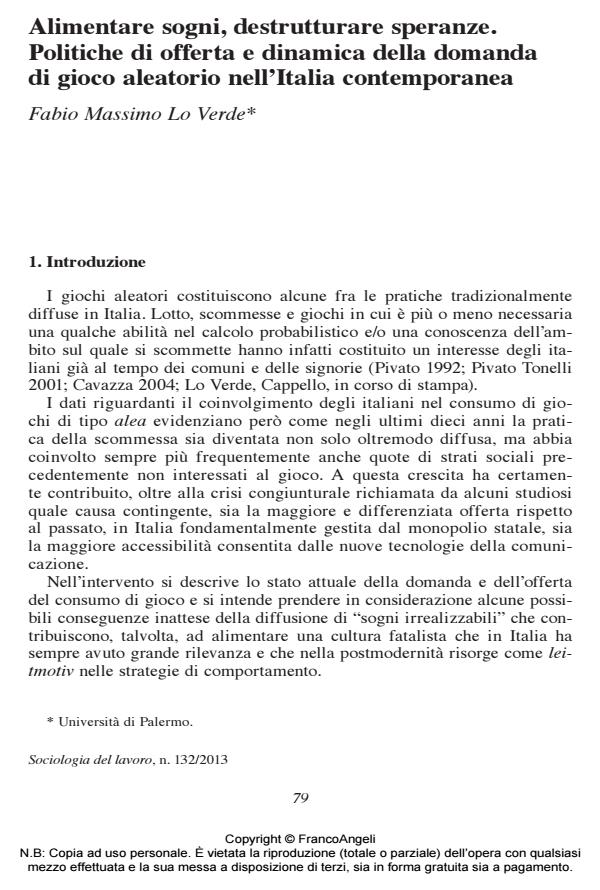Feeding dreams, deconstructing hopes. Supply policies and demand dynamics in Italian contemporary
Journal title SOCIOLOGIA DEL LAVORO
Author/s Fabio Massimo Lo Verde
Publishing Year 2013 Issue 2013/132
Language Italian Pages 18 P. 79-96 File size 623 KB
DOI 10.3280/SL2013-132007
DOI is like a bar code for intellectual property: to have more infomation
click here
Below, you can see the article first page
If you want to buy this article in PDF format, you can do it, following the instructions to buy download credits

FrancoAngeli is member of Publishers International Linking Association, Inc (PILA), a not-for-profit association which run the CrossRef service enabling links to and from online scholarly content.
Feeding dreams, deconstructing hopes. Supply policies and demand dynamics in contemporary gambling. The data on the involvement of Italians playing games of chance (usually gaming, betting, lotteries etc.) show that over the past decade the practice of "betting" has become extremely widespread. This has certainly contributed to its growth, in addition to the economic crisis argued by some scholars as being contingent. This has led to an increase in the supply of games, a significant increase compared to the past and basically managed by the state monopoly in Italy, with an increased accessibility offered by new communication technologies. This study describes the current state of supply and demand in gambling, taking into account possible "unexpected" consequences in the spread of "unrealistic dreams" that sometimes contribute to feed a fatalistic culture, which in Italy has always had great significance and comes up again in post modernity as a leitmotiv in the strategies of consumer behaviour. Therefore, our focus is on the analysis of the entire supply chain of gambling and in particular on certain betting games, noting that the tax benefits to the state and the overall expenditure and benefits for the consumer are fundamentally unbalanced solely for the benefit of some companies which make a private offer. Finally it should be noted that gambling is an activity that outlines a "phenomenology" relevant in the behaviours of contemporary purchasing.
Keywords: Gambling gaming, gambling, betting, risk, games of chanche
Fabio Massimo Lo Verde, Alimentare sogni, destrutturare speranze. Politiche di offerta e dinamica della domanda di gioco aleatorio nell’Italia contemporanea in "SOCIOLOGIA DEL LAVORO " 132/2013, pp 79-96, DOI: 10.3280/SL2013-132007